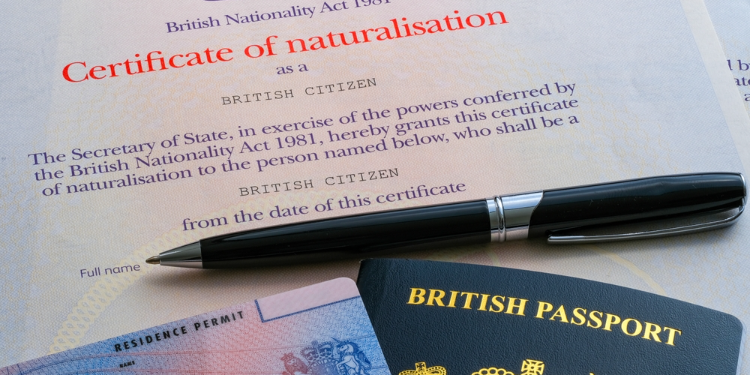Many citizenship tests were created only in the 2000s
It might come as a surprise that naturalization tests haven't existed for as long as major waves of immigration or expatriation have existed. In fact, many of them came into existence in the last 20 years. Nearly all of them are written multiple-choice tests that have between 10-30 questions about the host country's history, political system, laws, core values and symbols. One exception to this format is the test in the US, which is oral and has open-ended questions.
The UK's citizenship test, called the “Life in the UK” test, was implemented in 2005. The next year, in 2006, Austria's test was created, and in 2007, it was Australia's turn. In 2008, the German citizenship test or the “Einbürgerungstest” was implemented. The Civic Integration Act of 2013 in the Netherlands made it compulsory for non-EU expats to take an integration test after 3.5-5 years. In Spain, passing the CCSE—the “Constitutional and Sociocultural Knowledge of Spain Exam"—has only been required since 2015 (less than a decade ago!).
In 2017, a legal reform in Luxembourg made it compulsory for expats applying for naturalization to either take a "Living together in the Grand Duchy of Luxembourg" course or take an exam about the course's content. That's a major difference from the other countries mentioned: expats can opt for the course rather than the exam, so the exam isn't strictly compulsory.
The tests in the US and Canada are much older, dating as far back as the 1980s. The civics test of the United States Citizenship and Immigration Services was last updated in 2008, but the Biden administration is testing a newly updated version that will likely be implemented in late 2024.
The more recent adoption of tests outside of North America was triggered by various political factors: the War on Terror and the strengthening of borders, debates about multiculturalism, and the refugee crisis. For instance, in the UK, the idea of a citizenship test came about with the publication of the Cantle Report, which called into question the idea of multiculturalism after ethnic riots in 2001. The reasons behind the fairly recent creation of these tests across Europe have led to criticism that they are intrinsically xenophobic.
Multiple other controversies have surrounded these tests. For instance, following the recent conflict in the Middle East, it has been reported that the German citizenship test will include more questions about the state of Israel, which has generated controversy because they are questions about another state, not Germany. In the UK, academics have criticized the “Life in the UK” test for containing factual errors and expecting expats to know trivia (like the height of the London Eye) rather than crucial information like how to register at a GP practice. In the Netherlands, expats can be fined by the state for failing the citizenship test, a move that the EU has criticized.
A summary of the major citizenship tests
As previously said, these tests have a slightly similar multiple-choice format but can vary in their details. Here are specific details about each country's test.
In most cases, the test is free because its fee is considered part of the naturalization fee that the expat paid for the entire process.
The US
This is an oral test with open-ended, short-answer questions. An immigration/UCSI officer asks the applicant 10 questions about the civics of the US, and they have to answer at least 6 correctly to pass the test. These 10 questions are drawn from a fixed list of 100 questions, which the applicant has to practice in advance. Some of the questions are “Name one problem that led to the Civil War” (history), “Name one of the two longest rivers in the United States” (geography), and “When is the last day you can send in federal income tax forms?” (rights and responsibilities).
Canada
This test is available in both English and French, the country's two official languages. It is a half-hour multiple-choice test with 20 questions, of which 15 must be correctly replied to. The questions are drawn from a guide called “Discover Canada: The Rights and Responsibilities of Citizenship” which can be downloaded for free from the website of the Canadian government. This guide is about 70 pages long and has sections about the country's geography, symbols, history, justice system, governmental system, economy, etc. The guide also has a section with practice questions.
The UK
Like the Canadian test, the British test is based on an official study guide called the “Life in the UK” manual. Unfortunately, it is not available for free – a subscription from its official publisher, TSO, is required to access the e-learning materials. The guide tends to be updated each year. Expats have 45 minutes to answer 24 multiple-choice questions that are randomly drawn from a pool of 408 questions. To pass, they must score at least 18 out of 24, i.e., 75%, correctly. The test fee is not covered by the general naturalization application fee. Instead, the applicant must pay £50 for each test attempt.
Germany
The “Einbürgerungstest” has 33 multiple-choice questions, 30 of which apply to Germany in general and 3 are about the specific state (e.g., Bavaria, Saxony) the applicant resides in. To pass the test, expats must answer 17 out of them, i.e., slightly over half. They have an hour to do the test. Thankfully, this test has a very high pass rate – in recent years, 90% of all test-takers have passed it. Expats who have studied social science, law, or administration at a German university are exempt from taking this test.
Spain
The CCSE test has a mix of multiple-choice and true-or-false questions, although most questions belong to the former category. It is a 45-minute test with 25 questions, 15 of which must be answered correctly. 60% of the questions are about the law and government, while 40% are about general history and culture.
The test is completely in Spanish, so expats are expected to have intermediate Spanish proficiency by the time they take the test. The Instituto Cervantes, more famously known for holding the DELE language tests, is also the institution responsible for holding the CCSE tests. Unfortunately, the test comes with a fee of €85 per attempt. Once passed, the results are valid for 4 years. The expat should use these results to apply for citizenship within these 4 years.
The Netherlands
The Dutch “Inburgeringsexamen”, or Civic Integration Exam, is only compulsory for long-term non-EU expats. It is a “2-in-1” test because it tests applicants' Dutch language skills and knowledge about Dutch society at the same time. The language level tested is elementary – A1 or A2 (A2 for newcomers).
The parts that test language level include a reading, writing, listening and speaking test. They complement the “Kennis Nederlandse Maatschappij” (“Knowledge of Dutch Society”) and “Oriëntatie Nederlandse Arbeidsmarkt” (“Orientation on the Dutch Labour Market") parts of the test. “Knowledge of Dutch Society” is a 45-minute test during which expats must reply to at least 26 out of 45 multiple-choice answers correctly. Of course, it is in Dutch. For “Orientation on the Dutch Labour Market,” expats need to complete a set of assignments at home (to compile a portfolio) and take 64 hours of a labor market course (ONA course). They can alternatively forego that course if they pass an interview that replaces it.
Luxembourg
As Luxembourg is multilingual, their citizenship test can be taken in English, French, German or Luxembourgish. The test "Living together in the Grand Duchy of Luxembourg" is preceded by a free 24-hour course that is given by the state to expats. This course has three sections – “Fundamental Rights of Citizens” (6 hours), “State and Municipal Institutions in the Grand Duchy of Luxembourg” (12 hours), and “The History of the Grand Duchy of Luxembourg and European Integration” (6 hours). The exam following the course is also free; it has 40 questions that must be answered within 1 hour.
Austria
Like the British and Canadian tests, the Austrian test comes with an official guide. It is an 85-page guide named “Mein Österreich” (“My Austria” in German) that can be downloaded for free from the government website. The website also has an online practice quiz. The test has 18 questions in German, which are divided into three parts. To pass, expats need to answer two-thirds of all questions, or half of each section, correctly.
Australia
The test is compulsory for prospective citizens aged 18-59. Those younger or older can replace the test with an interview. There are 20 multiple-choice questions that can be answered within 45 minutes. To pass it, expats need to score at least 75% overall and make no mistakes on the 5 questions concerning Australian values. The other 15 questions deal with the law and government (e.g., voting rules, the constitution, the difference between the House of Representatives and Senate) as well as general history (e.g., historical dates, Aboriginal history).
South Korea
The test is called the “Korea Immigration and Naturalization Aptitude Test” or KINAT. It is taken right after all other citizenship application documents have been submitted. The test is completely in Korean, so the applicant is expected to have intermediate proficiency in the language. The test has 20 multiple-choice questions about Korean history, politics, and customs, including questions about the country's liberal democracy.
Expats can take the free Korean Immigration and Integration Program (KIIIP) offered by the state before that exam to increase their chances of passing it. KIIP has five levels and covers both the Korean language and culture. The last level lasts a total of 70 hours and makes the applicant fully ready for the KINAT. The lower levels, meanwhile, last around 100 hours each, except for Level 1, which requires only 15 hours of learning.
Useful links:
Welcome to the 2008 Civics Practice Test! | USCIS
Study Guide – Discover Canada – The Rights and Responsibilities of Citizenship - Canada.ca
The Official Shop | Official Life in the UK Learning Zone
Life in the UK Test: Book the Life in the UK Test - GOV.UK
BAMF - Bundesamt für Migration und Flüchtlinge - Homepage - Naturalisation in Germany
DELE - CCSE - Constitutional and Sociocultural Aspects of Spain
Civic Integration Exam Abroad | IND
Mein Österreich, Vorbereitung zur Staatsbürgerschaft - Startseite
Citizenship interview and test
Guide to 2019 Korea Immigration & Integration Program (KIIP)
















